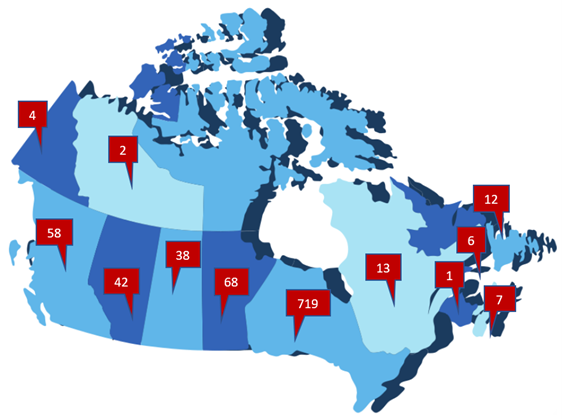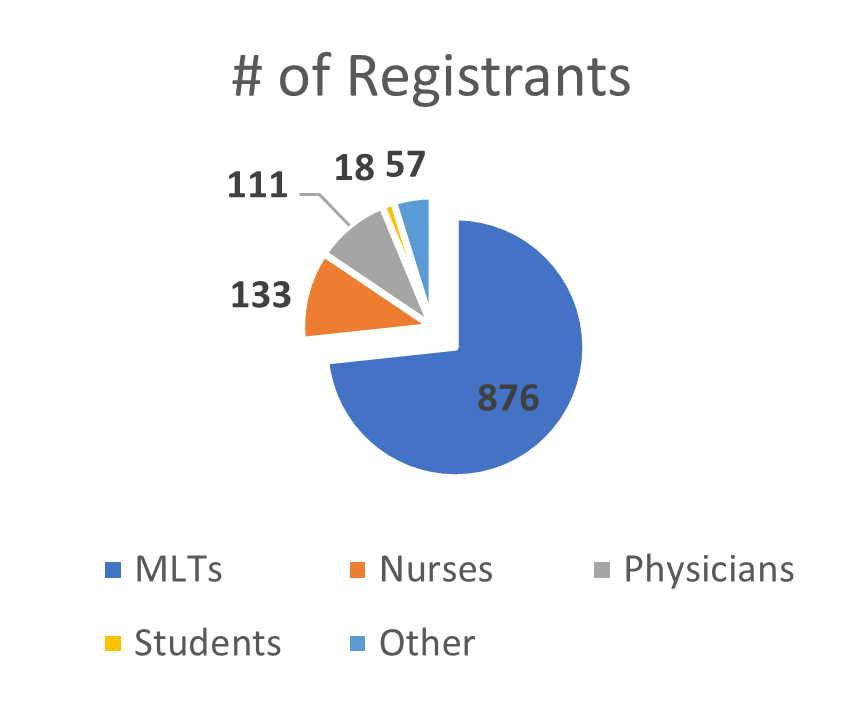ORBCoN recaps the 18th Annual Transfusion Medicine Education Workshop and Symposium
Thursday, July 13, 2023 Tracy Cameron
Tracy Cameron is the North and East Ontario regional manager for the Ontario Regional Blood Coordinating Network (ORBCoN). ORBCoN was launched in 2006 with funding by the Ontario Ministry of Health to provide an organized and integrated approach to blood management in Ontario through the engagement of hospitals and Canadian Blood Services. Since 2007, ORBCoN and Canadian Blood Services have partnered in hosting an annual ORBCoN/Canadian Blood Services Transfusion Medicine Education Workshop and Symposium for transfusion health-care professionals. Presenters at this year’s event included Canadian Blood Services medical officers Dr. Johnathan Mack and Dr. Michelle Zeller, along with medical director and special advisor, Dr. Kathryn Webert.
This article originally appeared in the June ORBCoN newsletter. It has been edited for length and/or clarity.
The Ontario Regional Blood Coordinating Network (ORBCoN) and Canadian Blood Services co-hosted the 18th Annual ORBCoN/Canadian Blood Services Transfusion Education Workshop and Symposium held on April 26th and 27th of this year.
The workshop aimed to educate community hospital staff involved in transfusions, including ordering physicians, nurses that administer the components and products, and technologists involved with testing and preparing components and products. The workshop focused on autoantibody cases while the conference focused on platelets, plasma, and fibrinogen products.
Dr. Johnathan Mack presented two different cases for each tier based on the difficulty of the transfusion medicine lab workup. The plenary program aimed to help attendees understand the different components other than red blood cells, their risks and benefits, strategies to reduce adverse events, and recommend appropriate components for clinical situations. Dr. Andrew Petrosoniak discussed Fibrinogen replacement, Dr. Michelle Zeller covered platelet usage, and Dr. Kathryn Webert presented on the benefits of solvent detergent plasma.
Recorded presentations from the event can be viewed on ORBCoN’s website.


Canadian Blood Services – Driving world-class innovation
Through discovery, development and applied research, Canadian Blood Services drives world-class innovation in blood transfusion, cellular therapy and transplantation—bringing clarity and insight to an increasingly complex healthcare future. Our dedicated research team and extended network of partners engage in exploratory and applied research to create new knowledge, inform and enhance best practices, contribute to the development of new services and technologies, and build capacity through training and collaboration. Find out more about our research impact.
The opinions reflected in this post are those of the author and do not necessarily reflect the opinions of Canadian Blood Services nor do they reflect the views of Health Canada or any other funding agency.
Related blog posts
In March 2023, pathogen-reduced platelets rolled out to hospitals served by our Dartmouth production site. Read about the resources available to help health-care providers learn about pathogen-reduced platelets.
Since 2007, Canadian Blood Services and the Ontario Regional Blood Coordinating Network (ORBCoN) co-chair the planning and execution of an annual transfusion medicine symposium in partnership with a community hospital. The involvement of the community hospital is key in identifying topics of...
For patients who have cardiac surgery, the risk of severe blood loss is high if they have a condition called acquired hypofibrinogenemia — this means they have an undersupply of an essential blood clotting protein called fibrinogen. Doctors aim to minimize their bleeding with a fibrinogen replacement product, either cryoprecipitate or fibrinogen concentrate, to restore clotting factors to normal levels. A recent study that compared both products could have an impact on how cardiac patients are treated in Canada.


